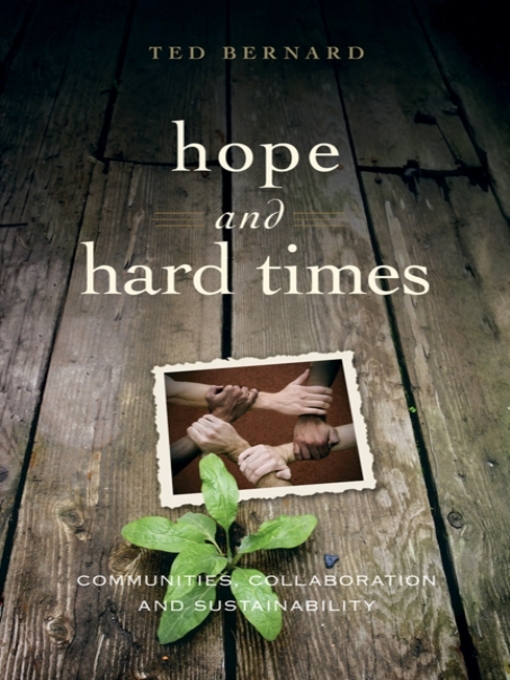More than a dozen years ago, Ted Bernard traveled to nine communities across the United States to meet residents who were working collaboratively to solve natural resource conflicts. While there may have been different perspectives as to process, their common goal was to achieve higher levels of sustainability as vibrant communities. He visited places as diverse as tiny one-mile-square Monhegan Island in Maine and cities as large as Chicago and Chattanooga and, with Jora Young, wrote about his findings in The Ecology of Hope (1997).
Now Bernard has caught up with these communities again, to discover their progress and see what a difference their collaborative conservation has made in fifteen years. Hope and Hard Times chronicles that journey; the successes, the speed bumps, and the remarkable tenacity and persistence of the partnerships and initiatives driving change during exceedingly hard times. Overall, community-based sustainability initiatives have proved resilient, despite the downward-spiraling of the global economy and the looming problems of global climate change. Their quest points to the need for new perceptions of nature and of humankind, more guidance from nature, and less consumption and materialism. They offer advice on how to live on pieces of land without spoiling them.
These narratives offer hopeful roadmaps for other communities who are working toward a sustainable future, and will appeal to community activists, natural resource professionals, educators, and environmentalists.
Ted Bernard is a professor of environmental studies at Ohio University, and co-author of The Ecology of Hope. He lives in the Shade River watershed in southern Ohio.
|Successes and speed bumps on the road to sustainable communities.

